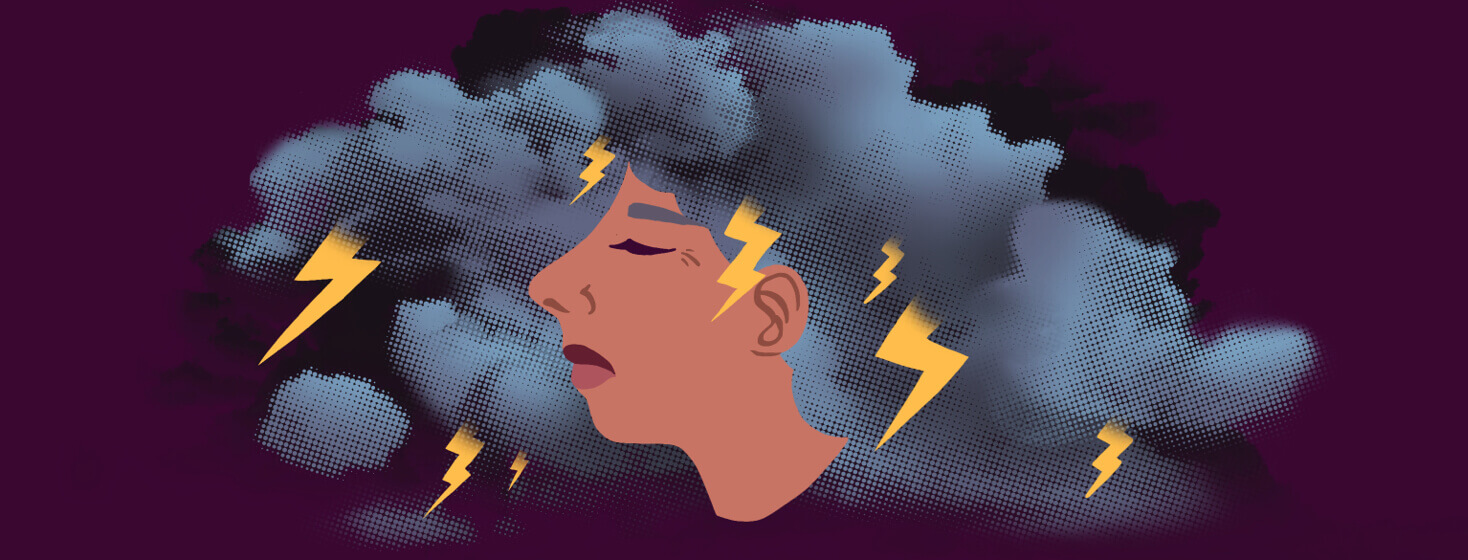Weather, Storms, and the Effect on Epilepsy
For the most part, I've always loved thunderstorms. Growing up in Minnesota, we would get some truly gorgeous storms. Arizona's monsoon season reminds me of Minnesota's spring.
When I moved to Arizona I didn't know anything about Arizona's monsoons besides it will rain a lot. Let me tell you some fun facts about Arizona monsoon thunderstorms (although you might feel that some of them are subjective)...
This or That
Does weather trigger your seizures?
Nerding out on storms
- According to Arizona State University, the correct term is "monsoon thunderstorms" not simply the word "monsoon."1
- Our glorious monsoon season is technically supposed to start mid-June and go throughthe end of September. Personally, I've noticed it doesn't really start in my area until around the end of July.
- Our thunderstorms are usually over within about 40 minutes.
- During storms, bad drivers become worse drivers. Some people even speed up during the downpour.
- Arizona's storms are also beautiful and exciting. (If no one is injured.)
- I love the hail that happens. (When everyone's cars are safely inside and not damaged, of course.)
Flashes of lightning
For my household, storms equal great family time. My family and I will go to our back porch and watch the hard rain and wind blow. We listen to the thunder and count until there is lighting.
Lightning that's minutes apart is my favorite. Seeing those streaks of lightning through the sky brings a smile to my face. However, my danger comes when lightning is back-to-back. These aggressive lightning flashes act as a strobe light for me, and I have photosensitivity epilepsy.
Epilepsy action plan
Here's my action plan when that happens:
- Head inside. We bring my daughter in as well (since she hasn't been tested for epilepsy yet).
- Make some tea or cocoa.
- Shut the blinds in my room.
- Turn on the lights in the room. The lights help minimize the effect of the lightning's flickering power over me.
- Snuggle under a blanket
- Continue to enjoy the storm and count the seconds between thunder and lightning.
This plan allows my family to still be able to enjoy the storms. We just make sure that safety comes first. If you have epilepsy (or any other disorder) it's always a great idea to have an action plan.
Photosensitive epilepsy
I want to point out that people impacted by photosensitive epilepsy are actually a small percent of our population. This type of epilepsy is only around 3 percent of the epilepsy population. Even though the general public may think it is the most common.
Barometric pressure and epilepsy
For other reasons, storms can create problem for some (not all) people with epilepsy as well. I have met other individuals with epilepsy over the years who are impacted by barometric pressure. Many of the people I have spoken to said changes in the barometric pressure impact them. During storms, some could have auras and some could have seizures.
The National Library of Medicine has an article about weather and barometric pressure related to epilepsy. This article is based on a case study from a university hospital in central Germany.
Their findings: "Low atmospheric pressure and high relative air humidity are associated with an increased risk for epileptic seizures, whereas high ambient temperatures seem to decrease seizure risk. Weather-dependent seizure risk may be accentuated in patients with less severe epilepsy."2, 3
Featured Forum
View all responsesPay attention to your seizure triggers
Storms and changing weather can be exciting and wonderful at times! However, pay attention to how your body responds and whether weather might be a trigger.
If you notice any changes in your epilepsy, I ALWAYS recommend speaking with your provider. It's great to have professional advice from your neurologist on what to do in different situations. Or to potentially talk about "rescue medication" in case you need extra help to prevent a seizure. I am grateful that my neurologist has provided me with rescue medication incase I was to ever need it.
Stay safe and enjoy the weather. And always remember, you are not alone.

Join the conversation